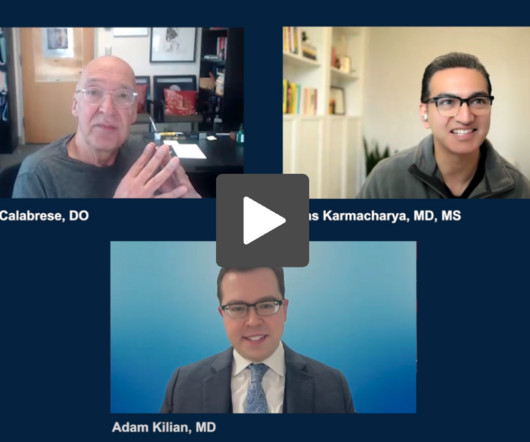Why Identifying and Managing Giant Cell Arteritis as an Emergency Is Crucial
Physician's Weekly
JUNE 25, 2025
Leonard Calabrese, DO, Paras Karmacharya, MD, MS, and Adam Kilian, MD, break down why giant cell arteritis (GCA) demands immediate action, explain how to confirm diagnosis quickly, and what same-day treatment options like upadacitinib (Rinvoq) mean for patient care. But treatment first, securing the diagnosis is secondary and often delayed.


















Let's personalize your content